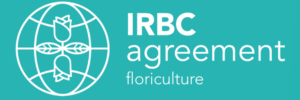INTRODUCTION
 The Agreement for International Responsible Business Conduct in the Floricultural sector brought together the private sector, NGOs, a trade union, and the Dutch government, to address human rights risks and environmental risks in the value chain with the aim to create a more sustainable production and trade in ornamental plants. The complexity of the international value chain calls for a collective effort to prevent or mitigate adverse impacts on people and planet. Accordingly, the parties have joined forces under the IRBC agreement to leverage their efforts. The IRBC agreement came to an end at the closing assembly in September 2022, during which the insights and recommendations from three years of collaboration were shared with stakeholders from beyond the IRBC agreement. These insights and recommendations can be found in the below roadmap reports. More general information about the IRBC agreement can be found on the IRBC web page.
The Agreement for International Responsible Business Conduct in the Floricultural sector brought together the private sector, NGOs, a trade union, and the Dutch government, to address human rights risks and environmental risks in the value chain with the aim to create a more sustainable production and trade in ornamental plants. The complexity of the international value chain calls for a collective effort to prevent or mitigate adverse impacts on people and planet. Accordingly, the parties have joined forces under the IRBC agreement to leverage their efforts. The IRBC agreement came to an end at the closing assembly in September 2022, during which the insights and recommendations from three years of collaboration were shared with stakeholders from beyond the IRBC agreement. These insights and recommendations can be found in the below roadmap reports. More general information about the IRBC agreement can be found on the IRBC web page.

